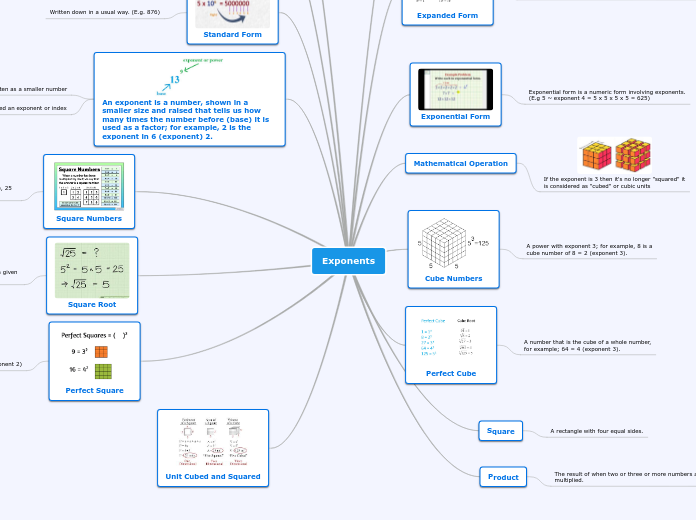a Jawdat Laveeza 5 éve
1863
Exponents
Exponents play a crucial role in mathematics, representing the number of times a base number is used as a factor in repeated multiplication. A base is the larger number that is multiplied, and its exponent indicates how many times it is used.









